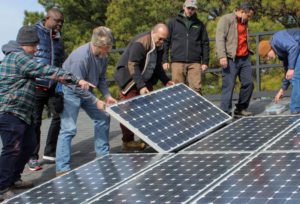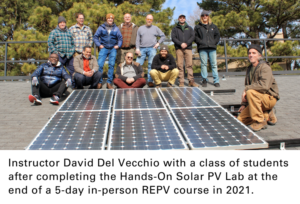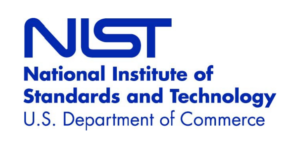Building Resilience in Native American Communities
 Earlier this year, NC State University announced it had been awarded a $5 million grant from the National Institute of Standards and Technology (NIST) to help Native American communities better prepare for future disasters and emergencies, such as the COVID-19 pandemic. NC State’s PowerAmerica Institute will work closely with Navajo Technical University, Sandia National Lab in New Mexico and Native colleges to engage with these communities.
Earlier this year, NC State University announced it had been awarded a $5 million grant from the National Institute of Standards and Technology (NIST) to help Native American communities better prepare for future disasters and emergencies, such as the COVID-19 pandemic. NC State’s PowerAmerica Institute will work closely with Navajo Technical University, Sandia National Lab in New Mexico and Native colleges to engage with these communities.
NC State will also create technical and engineering courses for universities and community colleges that center Native communities and their needs in the context of the COVID-19 pandemic and future pandemics. Specifically, PowerAmerica will develop a “Train the Trainer” curriculum for community college instructors, faculty members, educators, and working technicians — builders, electricians and roofers — in Native American communities. The curriculum will be customized from existing courses offered by the NC Clean Energy Technology Center (NCCETC), located at NC State.
NCCETC’s Training Program has provided individuals, local governments, and industry partners with the courses and credentials on topics related to solar and other renewable energy technologies for more than 30 years. “With this funding from NIST, we’re excited to be able to support communities that were disproportionately affected by COVID-19 and provide resources to help them prepare for the future,” said Allison Carr, Senior Training Specialist at NCCETC.
NCCETC will also help develop new course content based on the project teams’ power electronics research. Carr said, “We are responsible for developing and assembling course materials for engineering and technical students which will provide materials for faculty and instructors to use in future course development.”

Programs and courses offered by NCCETC provide comprehensive, high-quality classroom, hands-on, and virtual learning for the skilled workforce and professional audiences on a variety of topics that support the growth of sustainable and robust renewable energy industry in North Carolina and across the United States. “For this project, we’re going to customize two existing courses to meet the specific needs of tribal communities, trainees and education partners,” explained Carr.
NCCETC is planning to offer two courses, including the REPV: Fundamentals of Photovoltaic Design and Installation and the Solar Storage Workshop. The REPV course covers the fundamentals of design and installation of photovoltaic solar systems. The 40-hour course is based on the North American Board of Certified Energy Professionals (NABCEP) Learning Objectives for NABCEP PV Associate.
 NABCEP is a nationally recognized certification organization for professionals in the field of renewable energy. The Solar Storage course covers fundamental principles of battery based systems over 24 course hours. Upon completion, participants will be able to assist in designing and installing a residential solar PV system with battery back-up.
NABCEP is a nationally recognized certification organization for professionals in the field of renewable energy. The Solar Storage course covers fundamental principles of battery based systems over 24 course hours. Upon completion, participants will be able to assist in designing and installing a residential solar PV system with battery back-up.
“We have also trained many community college instructors and experienced professionals who used advanced training to offer local training programs that are affordable and accessible to others in their communities,” Carr noted. She explained more in-depth training is provided to experienced professionals who are able to take the course material and offer solar energy courses to students at local community colleges or training centers.
To support the work funded by NIST, NCCETC is now hiring an additional Training Coordinator to join the team. The new Training Coordinator will be responsible for the implementation, marketing and management of a comprehensive range of clean energy training and education programs across the electric, building and transportation sectors. Learn more and apply online here.
 Mike Polnar, NIST Office of Advanced Manufacturing director, said, “The PowerAmerica project will convene multiple universities, community colleges, national labs and others with the goal of making Native American communities more resilient with reliable and efficient energy systems that are also clean and renewable. The effort’s ‘train the trainer’ component brings added value by supporting Tribal Community college instructors, working technicians and Native American college students.”
Mike Polnar, NIST Office of Advanced Manufacturing director, said, “The PowerAmerica project will convene multiple universities, community colleges, national labs and others with the goal of making Native American communities more resilient with reliable and efficient energy systems that are also clean and renewable. The effort’s ‘train the trainer’ component brings added value by supporting Tribal Community college instructors, working technicians and Native American college students.”
The funding is part of NIST’s Rapid Assistance for Coronavirus Economic Response (RACER) Program, which seeks innovative solutions for future pandemic preparedness.